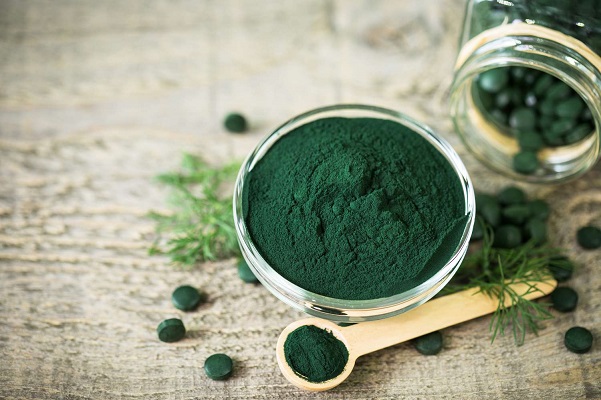On This Page
Overview
Lemon is a fruit with flavor. Lemon juice may create a notable appearance in dishes and beverages with just a small amount added. A few drops of lemon juice boost the flavor of our soup or beverages.
This round, colorful fruit is referred to scientifically as a citrus lemon and belongs to the Rutaceae family of flowering plants. Vitamin C is plenty in lemons. Lemon is beneficial to your health in many different ways. The acidic lemon juice has a pH of 2.2 and contains 5% to 6% citric acid. It can improve the flavor of a variety of foods, marinades, and beverages, as well as make the ideal salad dressing.
Lemons can help you lose weight and guard against several cardiovascular problems.
Synonyms of Lemon
- Neembu
- Citrus lemon
- Nimbuka
- Nimbu
Nutritional Facts of Lemon
A 1/2 cup serving of lemon contains
| Calories: | 31 |
| Protein: | 1 gram |
| Fat: | 0 gram |
| Carbohydrates: | 10 grams |
| Fiber: | 3 grams |
| Suger: | 3 gram |
Phytochemical Constituents of Lemon
- Alkaloids
- Flavonoids
- Phenols
- Quinines
- Terpenoids and carbohydrates.
Therapeutic Uses of Lemon
- Improve digestion
High levels of soluble fiber in lemon assist maintain regular bowel motions and enhance digestion. Pectin, the primary fiber found in lemons, promotes better digestive health by speeding up the digestion of carbs and sugar.
- Weight Reduction
Drinking lemon juice mixed with warm water and honey may help someone lose weight. It contains polyphenols, which prevent the body from gaining weight and storing fat.
- Scurvy
Scurvy is a condition that weakens blood vessels, can result in irregular bleeding, and is brought on by a vitamin C deficit. Fatigue, joint stiffness, joint pain, spongy and bleeding gums, fever, jaundice, and tooth loss are some of this disease’s symptoms. Strong antioxidant vitamin C also encourages the production of collagen, strengthening blood vessels even more. Additionally, it increases iron absorption and lowers the risk of bleeding and iron insufficiency in humans.
- Skin Lightening
Lemon juice is a fantastic all-natural bleach that has fantastic skin-lightening effects. Lemon’s beneficial vitamin C and antioxidants protect skin from UV ray damage and lighten sunburn. Additionally, it has exfoliating qualities that aid in eliminating dead skin cells and naturally lightening the skin.
- Treat Anemia
Lemons’ vitamin C aids in the cure of anemia by encouraging the absorption of iron from plant-based diets.
Home remedies Lemon
- Eczema
Did you know that eczema and other skin problems can be treated with lemon? We’ll explain how. Simply mix a teaspoon of honey and 8–10 drops of lemon essential oil in a cup of warm water. Apply the solution to the affected skin by dipping a linen cloth in it. You’ll see the results in about a week if you do this twice or three times per day.
- Ease from Sore Throat
Although some people might find it hard to believe, lemon juice works to soothe sore throats. Take a warm glass of water and season it with sea salt and lemon juice. Use this solution to gargle often. Without any medication, your throat will undoubtedly get better in a few days.
- Removes Acne
Lemons are excellent for healing acne because they contain citric acid and Vitamin C. This eliminates the bacteria that causes acne, leaving your skin clear and radiant. Before going to bed, you need to add lemon juice to a cotton ball and apply it to your acne. Next morning wash it off.
- Heal Bug Bite
An insect bit you? Why not use lemon to treat it? Apply a mixture of honey and a few drops of lemon essential oil to the afflicted skin. You would undoubtedly experience immediate alleviation from the feeling.
- Lemon Pickle
In order to ensure that the seasonal produce was not wasted and that its nutritional worth was increased, our dadis and nanis employed everything that was readily available to them in nature, including salt, spices, and sunlight. They therefore employed trial and error, tenacity, and patience to give us this wonderful gift known as pickle. She said, Pickles are rich in vitamin A, vitamin K, and probiotic microorganisms.Lemon pickles are among the healthiest varieties of pickles. Adding lemon pickles to your diet helps to improve blood flow. Copper, potassium, iron, and calcium are all abundant in it.

Have A Health Issue?
Consult Online
- Dr. Sahil Gupta (B.A.M.S., M.H.A.)
Ayurvedic Allergy Specialist
CEO & Founder of IAFA®
Ayurvedic Aspects of Lemon
All three doshas are improved by citrus lemon (Nimbuka), especially vata and Kapha. It has dry, light characteristics. It is effective as a remedy for many illnesses and can be applied externally in addition to internally.
Both skin conditions and digestive system stimulants can be treated with it. Vitamin C is abundant in its fruits. It also contains bioflavonoids and other vitamins like vitamin A, thiamine, riboflavin, and niacin.
Daily Dose: It’s sufficient to consume two lemons a day to stay hydrated.
Side Effects of Lemon
- Sunburns
According to certain research, exposing your skin to the sun after applying lemon juice can result in blisters and black patches. This illness, also known as phytophotodermatitis, is a more serious variation of sunburn. The culprits are psoralens, molecules found in lemon juice that combine with sunshine to produce a burn.
- Enamel decay or tooth erosion
Lemons are a very acidic type of citrus fruit. Due to the acidic nature of lemon, excessive and regular consumption of lemon juice may result in dentinal hypersensitivity and tooth decay. Using a straw to avoid getting lemon juice directly on your teeth, not brushing your teeth right after you drink lemon juice, and drinking lots of water are some ways to slow the decay process.
- Migraines
It’s common for citrus fruits to cause headaches and migraines. This may be due to tyramine, a natural monoamine that lemons generate and which frequently results in headaches. It is advised to limit your intake of lemon juice if you frequently have severe headaches. There is no conclusive evidence, however, studies have suggested a connection between eating citrus fruits and migraines.
- Stomach problems and heartburn
Too many citrus fruits can cause digestive issues, heartburn, acid reflux, nausea, and vomiting in people.
Conclusion
Lemons are multipurpose fruits that are packed with nutrients. Its properties are nutritious and therapeutic. It is a nutritious appetizer that also helps treat ailments by promoting digestion. Everything that is consumed in excess is bad, including lemon in excess. A sufficient intake provides health advantages. So if you face any negative effects or allergies, you can consult Dr. Gupta at IAFA® where he uses an herbal ayurvedic method to cure any illness.
References
- Journal of Endourology: “Quantitative assessment of citric acid in lemon juice, lime juice, and commercially-available fruit juice products.”
- https://benthamopen.com/FULLTEXT/TOBCJ-8-1#:~:text=The%20results%20showed%20that%20the,or%20chelating%20mode%20of%20actions.










